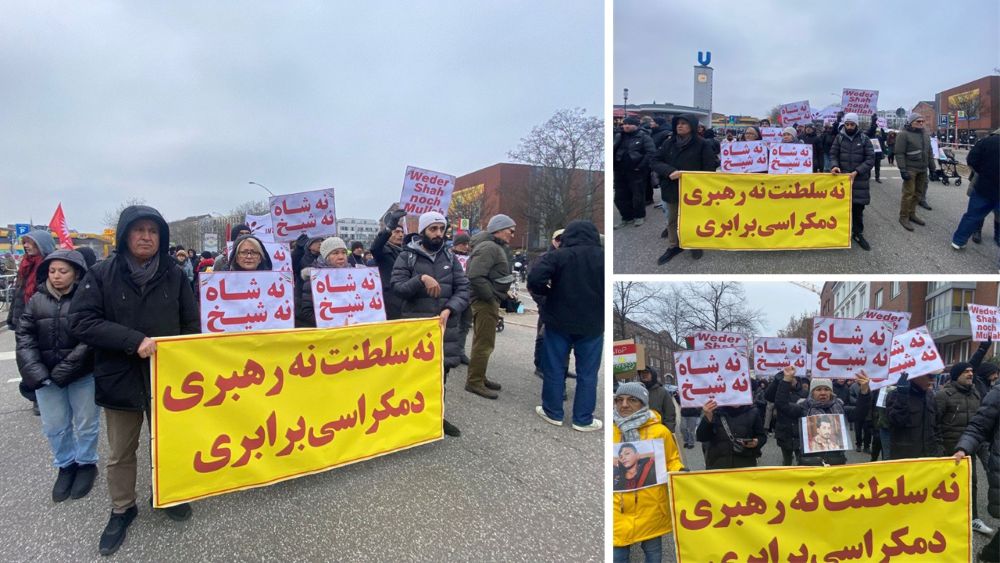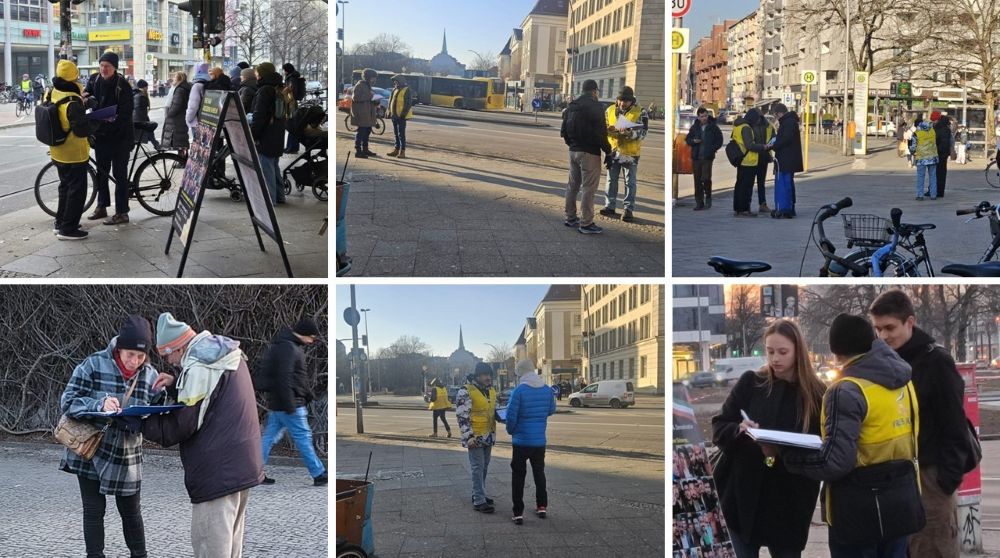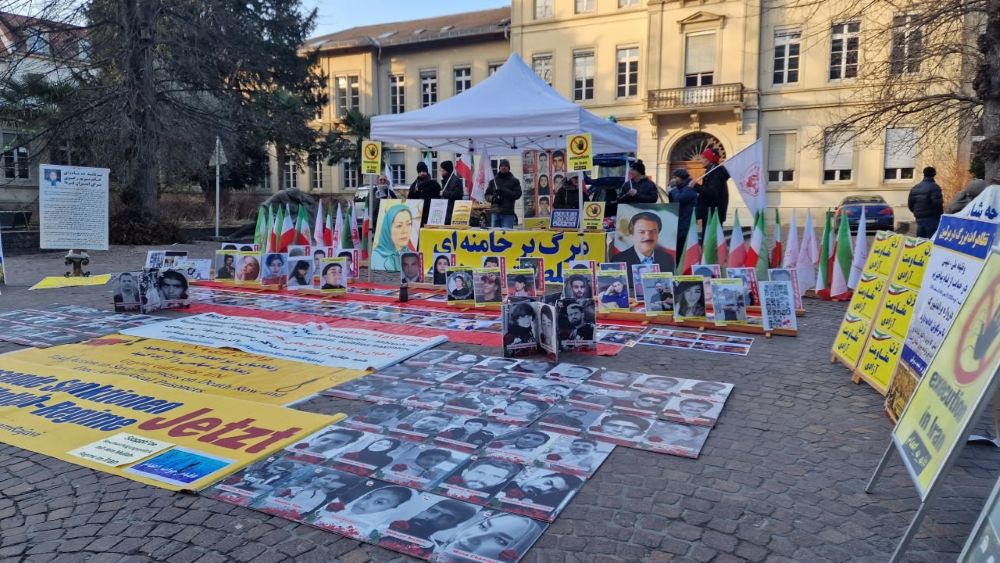Guy Verhofstadt, Prime Minister of Belgium (1999 to 2008), Leader of the Alliance of Liberals and Democrats for Europe from 2009 to 2019, addressed at the International Conference on the 1988 Massacre, attended by 1,000 Former Political Prisoners — 27 August 2021.
Thank you. And I want to thank you for this opportunity to speak at this occasion and I especially want to thank the speakers in the first round and a specialist that we had on human rights in the first round, because I think that they have given a useful and also a valuable insight on this massacre of 1988. Especially, I think that professor Robertson and Mr David have illustrated that this is not only a crime against humanity, but that all the conditions are there to qualify the massacre of 1988 as a genocide. And I think that could be a very important conclusion of this conference. The fact that every one of these distinguished professors and specialists on human rights are clear and saying that this is genocide.
Also, I want to send my deepest appreciation to the testimony we heard today from surviving families of those who have been murdered, because we are still, I am still shocked by what happened in 1988 in the Islamic Republic of Iran. And the reason why is because these people whom we are talking about, mainly young people, had no chance to hide themselves, had no chance to flee from their torture. All these people were already locked up. All these people were already deprived from their freedom. All these these people were already jailed and convicted by so-called revolutionary court. And it’s because of this fatwa of Khomeini that these people, already in jail, were tortured, interrogated in inquisitional sessions by the so-called death commissions, and almost hanged immediately.
What is so special to the massacre of 1988, I think is that it was targeting a whole generation of young people and young women and I think there is truth in that in was already planned years in advance, what happened in 1988. And what happened in 1988 is the consequence of the Iranian regime itself. The fact that the Iranian regime always tries to silence one or the other way, in the most brutal way, those who are asking for improvement of human rights, those who are asking for freedom, or even those who are asking for the sustainable solution for water. Also, that is deemed by the regime as an attack on the regime.
So I think that the 1988 massacre was planned. It was rigorously prepared. It was gruesomely executed, and yes at breakneck speeds with a clear target group in mind, and therefore I think Mr. Robinson and Professor David are right to qualify it as genocide. I want also to pay tribute to the victims by a short moment to imagine together here in the conference, the situation that if these murders had never taken place. Imagine that instead of this mass slaughter, all these people, many of them were teenagers, many of them were in their early twenties, had regained their freedom. That these people were not slaughtered, and these people, talented and driven men and women, found the opportunity to rebuilt their country, raise their children, start a business, cast a ballot in free and fair elections.
Then I think that without that Massacre of 1988, there would be a totally different Iran today. And so this Massacre of 1988 has a deep significance I think for Iran. And it has been done already, but I want to recall it. The anniversary of the 1988 state massacre is not to mourn those who are slaughtered, it is simply also to remind what price has been paid for freedom and for the fight for freedom. And we have to recognize, and it has already been said, but I want to recall it, that after the massacre, the International Community has, let’s say it again, failed to act over this crime against humanity.
We all know, it has been said, but I repeat it, the events of December of 1988 were never officially investigated by the UN, and as we know the instigators and the perpetrators were never indicted and far worse, we have to say the perpetrators continue to enjoy impunity and today the regime is run by the killers of that time, occupying senior government positions, including the new president, Raisi, who we all known his track record on human rights violations and who plays as we know a leading role in this massacre.
I think that the only benefit of, I cannot say election because it was not a fair election, but the promotion, I will say, of Raisi to the presidency, is that maybe for the first time, it has drawn the world’s attention to that massacre again of 1988 and to the many long-established patterns of human rights violations and murders in Iran. And I think that it would be good also that we express our gratefulness to all the journalists, activists, and social media, and human rights defenders, that in the last month, since the promotion of Raisi, have reminded the world of this man’s litany of abuses and crimes that run like a thread and tear at his dubious character.
We should also, and I want to go a little bit into detail in this, be grateful for the case of Hamid Noury, who is standing trial in Stockholm for war crimes and murder in connection with the hardest prison massacre. As we know it is the first time that a member of the so-called death commission is facing prosecution and hopefully, this trial will not only reveal details and names of what happened, but also be an example for other countries to a put people before a court. Because let’s not forget, that in many countries in the west and in many European countries, in the existing law in the existing legislation, there is already the possibility to put people that are suspected to be perpetrator of crimes against humanity before their courts.
Before their own course, as it is the case now in Sweden. So what Sweden is doing, what the court in Sweden is doing is an extremely important example that needs to be followed up at the same attitude in many other Western and European countries. Because in their legislation today, there is already the possibility to put perpetrators of crimes against humanity before their courts, even when the facts have not been done on the soil of the European or western state. But nevertheless, I agree with the general appeal today in this conference, that we need a profound official International investigation. Because we cannot tolerate the fact that impunity continues, and we must not delay it any longer.
It’s high time, 33 years after the tragic events, to fully uncover the scope of the massacre, and it’s our moral duty to do so. Because if we fail to do so, we remain not only blind to the terrible atrocities committed by this regime, but I think it is even more important, we remain blind to the endless grief of the affected families, and the survivors. For them this continues, this tragedy, and this tragedy can only end when those who were responsible are sanctioned, are convicted. And not launching an official inquiry on an international level implies also that we open the door of impunity to every other regime where torture and murder are common practice, and failing to carry out an official investigation under the auspices of the UN would result in fact in inviting all malice regimes, where human rights are trampled, to continue their practices, to continue their violence against their own people.
So, we need urgently this official inquiry and for what was possible after the genocide in Rwanda, and after the civil war in the former Yugoslavian Republic, must also be possible for the massacre in Iran. It was possible in Rwanda. It was possible for the former Yugoslavia Republic. An official inquiry under UN and followed by the installation of an international criminal tribunal.
I think that Europe has a special role to play in this. We always talk about human rights. We have to live up to our promises. And we, as Europe, have to be a catalyst for speeding up the process for an official inquiry in this. And therefore, I will take an initiative and I want to announce here in this conference to send a message, letter, officially to Borrell, the high representatives of the Union for foreign affairs and security policy, requesting him to submit, in the name of Europe, an official request to the UN for the establishment of a commission of inquiry into the massacre and to seek support for that request from other democratic governments like US, Canada, Australia, and Japan, to take up this course. I think that is what we need to do on the European level. Not only words, but an official request by the European Union to the UN, for the establishment of that.
So I conclude, three decades after the 1988 prison massacre in Iran, it is absolutely needed to do that, and we need to do that for the sake of Iran, for the sake of democracy and freedom in Iran, but especially for their families. So that they finally know where their relatives are buried, that the victim receive their rightful place, and that impunity for crimes against humanity will finally be brought to an end, and that will be the best way after 30 years, for them to conclude their long period of mourning. Thank you, Mrs. president.



